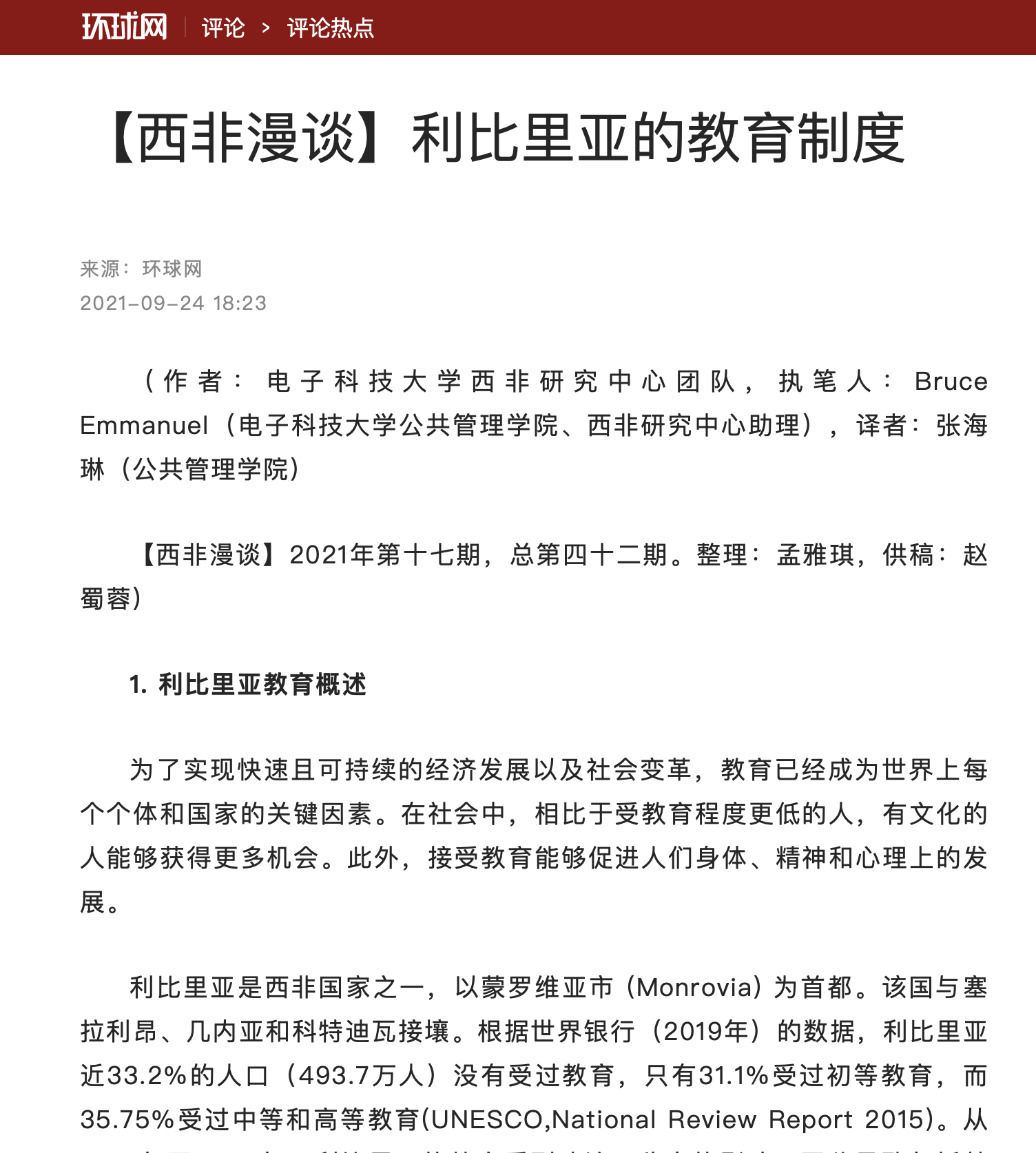
1. 利比里亚教育概述
为了实现快速且可持续的经济发展以及社会变革,教育已经成为世界上每个个体和国家的关键因素。在社会中,相比于受教育程度更低的人,有文化的人能够获得更多机会。此外,接受教育能够促进人们身体、精神和心理上的发展。
利比里亚是西非国家之一,以蒙罗维亚市 (Monrovia) 为首都。该国与塞拉利昂、几内亚和科特迪瓦接壤。根据世界银行(2019年)的数据,利比里亚近33.2%的人口(493.7万人)没有受过教育,只有31.1%受过初等教育,而35.75%受过中等和高等教育(UNESCO,National Review Report 2015)。从1989年至2003年,利比里亚的教育受到政治不稳定的影响,因此导致包括基础设施发展在内的教育系统中断(International Institute for Educational Planning, 2011)。在动乱期间,利比里亚30%的公立学校和24%的社区学校都被摧毁,导致利比里亚大多数城市的学生入学率下降。由于教育是国家发展的关键,在动乱后,利比里亚政府打算通过塑造个人的身体、心理、道德发展,为所有公民提供平等的优质教育机会,并通过提供确保健康、自由、安全、经济福祉以及参与社会和政治活动所需的环境保护人权 (Ministry of Education, Liberia2018)。
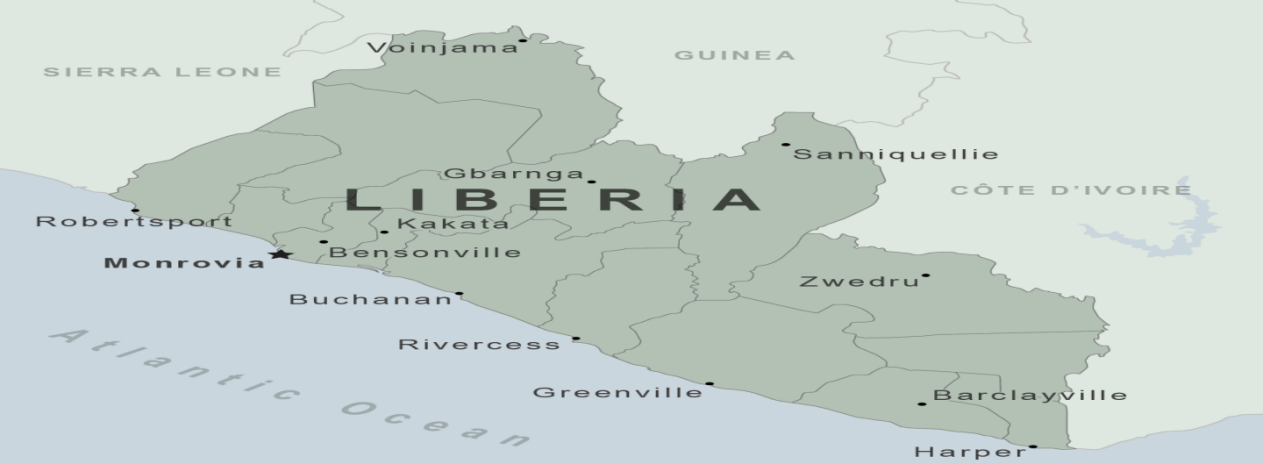
(图片来源: https://www.usaid.gov/liberia/education.)
2. 利比里亚政府和其他组织应对教育挑战的措施
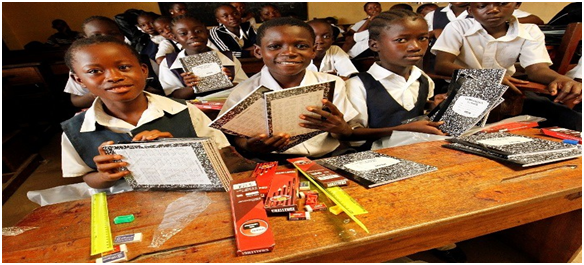
(图片来源: https://www.usaid.gov/liberia/education.)
尽管局势动荡,利比里亚的教育制度在过去十年中经历了巨大的发展和改革。根据《世界数据地图集》(2015年),尽管利比里亚政府打算为全国所有人提供优质教育,但文盲率依然很高,为53%。然而,根据2013年利比里亚人口和健康调查的报告,在长达14年多的内乱期间,缺乏必要的教材和合格的教师影响了利比里亚教育系统的质量。实际上,政府已经开始实施各种战略,以改善利比里亚城乡的教育系统(Fashina, 2017)。
2016年9月,利比里亚政府通过教育部发起了利比里亚合作学校(PSL)。这一合作关系使得八个私人组织接手了93所公立小学的管理。此外,美国贫困行动创新组织(IPA)设立了一项为期三年的随机对照试验(RCT),专门开展对照实验,以评估利比里亚合作学校(PSL)对提高利比里亚教育质量的影响。
此外,美国国际开发署 (USAID) 与利比里亚教育部合作,解决了利比里亚教育系统中与入学、教学质量和改善管理有关的教育挑战。从加速素质教育(AQE)计划中引入的加速学习计划(ALP)旨在解决8-15岁的失学儿童问题。更重要的是,利比里亚的加速素质教育计划(AQE)将帮助教育部将加速学习计划(ALP)监管框架制度化,并为学生过渡到正规教育系统做好准备。该四年计划针对48000名失学儿童,为他们提供优质教育。预计近780名教师将从专业发展机会中受益,以提高利比里亚的教学质量(USAID 2017)。
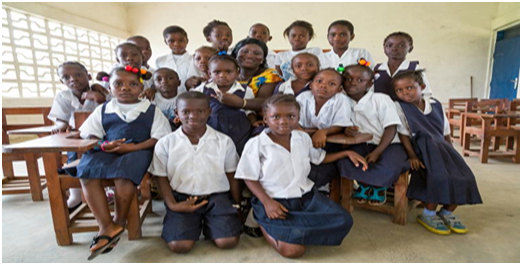
(图片来源: https://www.globalpartnership.org/where-we-work/liberia.)
3. 利比里亚教育的入学率和完成率
为了改革教育制度,利比里亚政府以普及教育为目标,提出并启动了改革议程,把教育放在优先位置。利比里亚设立了1-9年级儿童免费义务教育方案。在入学方面,1981年利比里亚招收了303168名学生,2015年招收了146万名学生。与利比里亚的高等教育相比,初中(JH)和高中(SH)的入学率更高。入学率的提高最终加剧了政府资源的压力,包括提供教师和教室(EMIS 2015)。
利比里亚的非政府学校的入学人数(即私立学校、教会学校和社区学校)占学生入学总人数的46%。私立、教会和社区学校招收了该国大部分学生。2015年,私立学校和教会学校占ECE入学人数的41%,小学入学人数的44%,JH入学人数的55%,高中SH入学人数的77%(EMIS 2015)。在过去几年中,私立学校的入学人数大幅增加。2007/2008年,私立学校的入学人数增长了18.3%,2015年增长了29.8%。
4. 利比里亚教育法案
2001年《利比里亚教育法》规定所有学生接受免费的初等义务教育,而2011年新的《教育改革法》规定所有利比里亚公民接受免费初等义务教育和九年级以下的基础教育。另一方面,利比里亚政府的包容性教育打算对整个教育系统(政策和资源分配、教学做法、课程、评估、基础设施等)进行根本性改革,以使教育具有灵活性。利比里亚的包容性教育政策具有以下价值观和指导原则:
每个学生都有接受优质教育的权利;因此,任何学生都不应因种族、肤色、性别、语言、年龄、阶级或社会群体、宗教、族裔出身、出生、贫困、残疾或任何其他身份而被排除在教育系统之外或受到歧视。
所有学生都能从教育中学习和受益;因此,整个教育系统和社区都需要进行改革,以确保系统适应学习者,而不是学习者适应系统。
无障碍教育是教育的一个关键组成部分,教育的各个方面,包括课程、教学方法、评估、学校文化和环境,都应该通过让所有学习者都能无障碍地学习来坚持包容性教育原则。
学习者之间的个体差异是丰富性和多样性的基础,而不是紧张。
学生的需求和发展模式的多样性应通过广泛和灵活的应对措施加以解决。
建设包容性社会和实现全民教育的最有效手段是通过包容性教育环境和方向。
5. 教育支持和其他教育财政援助
利比里亚政府通过与私营机构和其他国际捐助者,比如中华人民共和国政府合作,致力于提升课程质量、教学和管理人员、教学和学习资源、数据系统和政策环境等普及利比里亚基础教育所需的服务。
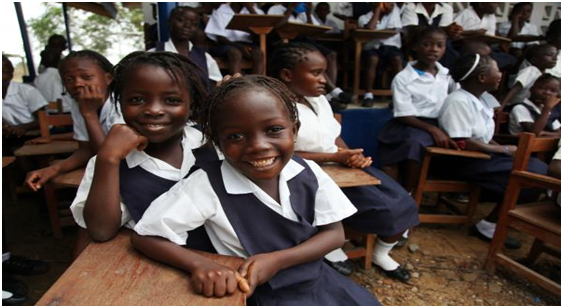
(图片来源:https://www.unicef.org/liberia/basic-education.)
通过中华人民共和国与利比里亚共和国的外交关系,中国政府支持利比里亚大学、芬德尔大学校园建设,这是利比里亚最大的项目之一。该项目从2008年4月开始,于2010年完成并移交,以促进利比里亚高等教育的改善和提高。该项目包括:
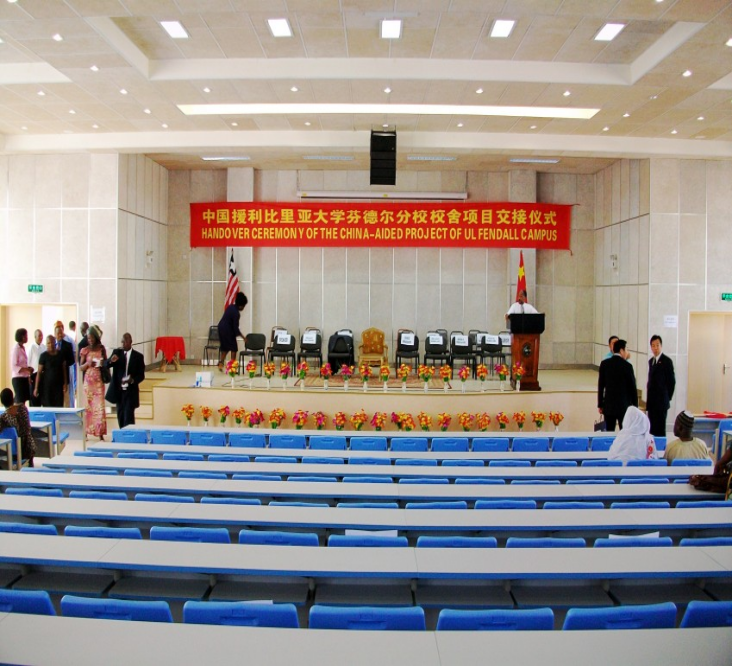
(图片来源: http://lr.china-embassy.org/eng/sghdhzxxx/t720771.htm.)
四层教学及行政大楼(约12000㎡)学院设有一个可容纳360名学员的学术交流中心、2间可容纳150人的大教室、27间教室、4间录音室、4间电脑室、一个5间图书馆、63间办公室、3间研究室、8间会议室和2间自助餐厅;
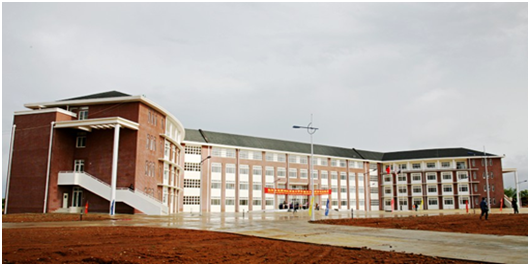
(图片来源: http://lr.china-embassy.org/eng/sghdhzxxx/t720771.htm.)
4栋两层学生宿舍楼,可容纳约1000名学生;
5栋三层员工宿舍楼,包含78套三类公寓;
辅助设施包括门房、中利友谊塔(其中还包括一个巨大的水箱)、一个可容纳三台750KV发电机的发电站、一个水泵房、一个中心有足球场的运动场、两个篮球场和一个网球场;
一些教学设施,如功率点投影仪、计算机、广播系统等;
中国政府提供的家具,作为项目的附加项目。
参考文献:
[1]Adeboye A. F. (2017). Teacher quality and Liberia’s educational system. Arts& Humanities Open Access Journal 1 (4): 1–2.
[2]Dalieh T. F. (2017). LiberianEducational Stakeholders' Perceptions of Overcrowding in an Urban PublicElementary School in Monrovia: College of Education. Walden University.
[3] KleesS. J. (2017). Liberia’s Experiment with Privatizing Education. National Centerfor the Study of Privatization in Education: Teachers College, ColumbiaUniversity. Accessed at http://ncspe.tc.columbia.edu/working-papers/WP235.pdf.
[4] Ministry of Education Liberia (2018). Inclusive Education Policy in Liberia.
Retrieved September 4, 2021 from http://moe-liberia.org/wp-content/uploads/2019/07/Liberia-Inclusive-Education-Policy.pdf.
[5] Ministry of Education. (2016). Liberia EducationSector Analysis. Monrovia: Republic of Liberia.
[6] Ministry of Education. (2016). Getting to BestEducation Sector Plan 2017–2021. Monrovia: Republic of Liberia.
[7] Republic of Liberia. (2011). Education Reform Actof 2011. Monrovia: Republic of Liberia.
[8] Sumaworo M. (2015). Challenges of TertiaryEducation in Liberia and Possible Solutions. European Scientific Journal. ESJNovember 2015 Special Edition.
[9] USAID (2000). Education Better Educated Liberians.Retrieved September 4, 2021 from https://www.usaid.gov/sites/default/files/documents/1860/USAID_Liberia_-_EDUCATION_Sector_Fact_sheet_0.pdf.
[10] UNESCO. (2011). Fragility and education inLiberia. Paris: UNESCO International Institute for Educational Planning. Retrieved September 4, 2021, from http://www.iiep.unesco.org/en/publication/education-and-fragility-liberia.
[11] UNESCO (2015). National Review Report 2015.Accessed at https://en.unesco.org/gem-report/report/2015/education-all-2000-2015-achievements-and-challenges.
[12] UNESCO (2017). Education in Liberia. RetrievedSeptember 2, 2021 from https://www.usaid.gov/liberia/education.
[13] UNESCO Institute of Statistics. (2019). Liberia.Retrieved September 4, 2021. http://uis.unesco.org/en/country/lr.
[14] World Bank (2016). Liberia Education SectorAnalysis. Retrieved September 4, 2021 from https://documents1.worldbank.org/curated/en/481011575583469840/pdf/Liberia-Education-Sector-Analysis.pdf.
[15]World Bank (2019). World Bank in Liberia Annual Report. Retrieved September 2,2021 from https://www.worldbank.org/en/country/liberia/overview.
电子科技大学西非研究中心介绍
一、中心概况
电子科技大学西非研究中心成立于2017年4月,是由电子科技大学与加纳大学、加纳海岸角大学、加纳行政管理学院、加纳温尼巴教育大学、加纳发展大学共同筹建的联合研究中心。中心依托电子科技大学公共管理学院,由赵蜀蓉教授担任中心主任。
西非研究中心的成立,是电子科技大学践行国家“哲学社会科学走出去战略”的一项重要举措,也是电子科技大学构建国际化跨学科研究体系、打造新型高端“智库”的有益探索。
西非研究中心立足于电子科技大学学科与国际交流优势,着眼于西非国家发展的现实问题和需求,以留学生人才培养为基础,搭建高水平的国际学术交流平台,发布研究课题,开展联合研究,为我国及西非国家提供高水平智库服务。
2021年3月,电子科技大学西非研究中心入选教育部高校国别和区域研究备案中心。
二、中心研究
研究对象:以加纳、贝宁、塞内加尔等重点西非国家为主的西非国别研究。
研究领域:中国-西非政治、经济与社会发展、公共管理、教育、文学、文化等领域研究;中国-西非经贸合作;中国-西非政府间关系研究。
三、中心的目标和任务:
西非研究中心联合加纳5所高校成员单位、电子科技大学西非校友会和加纳中华工商总会,着力打造集留学生人才培养基地、学术交流平台、西非研究智库为一体的“1+1+1”中非合作新模式,即:
1. 构建一个人才培养基地。中心将协助拓展来华留学生的西非生源,丰富电子科技大学本科、硕士、博士多层次留学生培养体系;开展西非海外干部培训、师资培训、定制化ICT与工程培训、学生暑期实践项目等,致力于构建集学历教育、在职培训、实训实践为一体的多元化、特色化的海外人才培训基地;帮助中资企业培养本土化人才,解决经济与社会发展问题。
2.搭建一个学术与文化交流平台。通过定期举办“西非论坛”等国际性学术会议、中非友谊·学术文化交流月,推广文化资源3D平台海外落地展项目、中国-西非国际产学研合作项目,致力于搭建集学术、人文、科技等多领域的中非交流与合作平台,提升中国高校、企业在非洲影响力与文化软实力。
3.建立一个西非研究智库。中心结合海内外成员单位的学科优势与研究特色,致力于西非经济、政治、人文交流的研究,加强与加纳“伊曼尼政策教育中心”(全球智库排名113)、“统计、社会和经济研究院”(全球智库排名164)等西非智库组织合作,加强联合研究、发布与承接西非研究课题,为中国政府及西非国家提供政策咨询,在教育与人才培养、科技服务、经济与企业管理及公共与政治管理等方面为国家提供高水平智库服务,发展成为具有一定影响力的西非研究智库中心。
四、中心成员单位
西非成员单位:加纳大学、加纳海岸角大学、加纳行政管理学院、加纳温尼巴教育大学、加纳发展大学、西非校友会。
电子科技大学成员单位:公共管理学院、经济与管理学院、外国语学院、国际教育学院、马克思主义教育学院、科学技术发展研究院、机械与电气工程学院、信息与软件工程学院。
五、中心信息化建设
中文网站:https://cwas.uestc.edu.cn/sy.htm
英文网站:https://cwas.uestc.edu.cn/English/Home.htm
微信公众号:gh_bfde9ecc926a(公众号名称:电子科技大学西非研究中心)
六、联系方式
电话:0086-028-61831756/61831706
邮箱:cwasuestc@163.com
通讯地址:成都市高新区(西区)西源大道2006号电子科技大学清水河校区西非研究中心综合楼450办公室。About Center for West African Studies of UESTC
1. Introduction
TheCenter for West African Studies of University of Electronic Science andTechnology of China (CWAS of UESTC) is a research center jointly established byUniversity of Electronic Science and Technology of China (UESTC), University ofGhana (UG), University of Cape Coast (UCC), Ghana Institute of Management andPublic Administration (GIMPA), University of Education, Winneba (UEW), and Universityfor Development Studies (UDS) in April 2017. The Center is based in the Schoolof Public Affairs and Administration at UESTC and is headed by ProfessorShuRong Zhao.
Theestablishment of CWAS is an important initiative of UESTC to pursue China’s“Philosophy and Social Sciences ‘Going Global’ Strategy” and a beneficialpractice for UESTC to build an international interdisciplinary research systemand a new type of high-level “Think Tank”.
InMarch 2021, the CWAS of UESTC was accredited by the Ministry of Education ofChina as the Center for National and Regional Studies for Universities.
2. Research Direction
Research Targets: Focusing on Ghana, Benin, Senegal, and othermajor West African countries and West African regions.
Research Areas: China-West Africa politic science, economic andsocial development, public administration, education, literature and culture,etc.; China-West Africa economic and trade cooperation; China-West Africaintergovernmental relations.
3. Mission and Goals
TheCenter for West African Studies, together with five member institutions ofuniversities in Ghana, UESTC Alumni in West Africa for West African Studies, andthe Ghana Chinese Chamber of Commerce, strives to create a "1 + 1 +1" new research model of China-Africa cooperation, which integrates a TalentTraining Base, an Academic Exchange Platform and a Think Tank for West Africanstudies. It aims to:
(1) To serve as aTalent Training Base. The Center helps to expandthe source of international students from West Africa and enrich themulti-level international student training system of UESTC for undergraduate,master, and doctor. Also, it carries out overseas cadre training, teachertraining, customized ICT and engineering training, and summer practice programsfor students in West Africa, and devotes itself to building a diversified anddistinctive overseas talent training base which integrates academic education,on-the-job training and practical training, and cultivates local talents forChinese enterprises to address economic and social development problems. (2) To build an AcademicExchange Platform. Through regularly holdinginternational academic conferences such as Forum on West African Studies,organizing China-Africa Friendship—Academic—Culture Exchanges Month, andpromoting overseas exhibitions of 3D platforms for cultural resources andChina-West Africa International Industry-Academia-Research Cooperation Project,the Center is committed to building a platform for China-Africa exchanges andcooperations in various fields such as academics, humanities, science andtechnology, and enhancing the influence and cultural soft power of Chineseuniversities and enterprises in Africa.(3) To establish a ThinkTank for West African studies. The Center iscommitted to research on economic, political, and humanistic exchanges in WestAfrica by utilizing the disciplinary strengths and featured research of itsmembers both in China and abroad. It works to strengthen cooperations with WestAfrican think tanks such as the Imani Center for Policy Education (ranked 113in global think tanks) and the Institute for Statistics, Social and EconomicResearch (ranked 164 in global think tanks) as part of efforts to enhance jointresearch, and collectively publish and undertake research projects on WestAfrican studies. The Center also aims to propose policy advice to the Chinesegovernment and West African countries, provide high-level think tank servicesfor China in fields covering talent training, science and technology services,economic and business management, and public and political governance. And, italso strives to become an influential think tank center for West Africanstudies.
4. Memberships
West African Members:
University of Ghana(UG),University of Cape Coast(UCC),Ghana Institute of Management and PublicAdministration (GIMPA), University of Education, Winneba(UEW),University of Development Studies(UDS),West African Alumni Association.
UESTC Members:
School of Public Affairs and Administration, School ofManagement and Economics,School of Foreign Languages,School of International Education,School of Marxism,Office of Scientific Research &Development, School of Mechanical and Electrical Engineering, School ofInformation and Software Engineering.5. Websites and Wechat Official Account
Chinese Website:https://cwas.uestc.edu.cn/sy.htm
English Website:https://cwas.uestc.edu.cn/English/Home.htm
Wechat Official Account:gh_bfde9ecc926a
6. Contact Us
Tel:0086-028-61831756/61831706
E-mail:cwasuestc@163.com
Address:Office 450,Center for West African Studies, Qingshuihe Campus, University of ElectronicScience and Technology of China, No. 2006, Xiyuan Avenue, High-Tech Zone (WestDistrict), Chengdu, China.
链接:https://opinion.huanqiu.com/article/44tv8oTVKbX